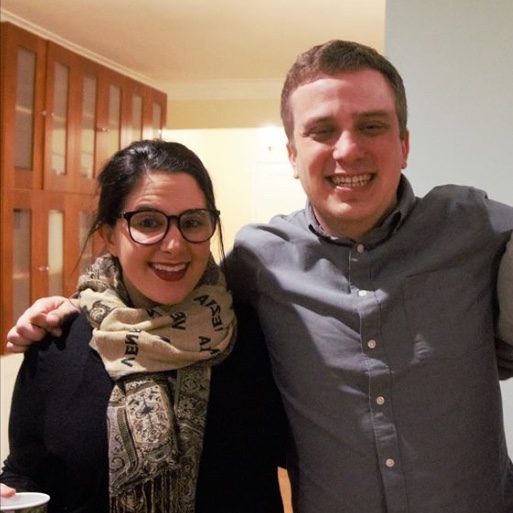Taco, Tequila, and Torah Tuesdays – 12/05/2017
The Common Questions People Have
At Taco, Tequila, and Torah Tuesday from December 5th, 2017 the focus was on the 10 most typical questions people ask in regards to Judaism. Rabbi Jack Melul answered a couple based on audience choice.
The 10 questions are as followed:
1. What’s behind the whole concept of the Jews as the chosen people? Isn’t this idea racist? Is this a cause of anti-Semitism?
2. What’s the Jewish definition of happiness?
3. What’s the purpose of life? Is it to attain pleasure?
4. What’s the definition of God? Does he exist? Where is he?
5. Did Mt. Sinai really happen? Did the Jews really receive the Torah? Is it divine?
6. I’m in love. Why get married? Is there a way I can get married once?
7. Where are women’s rights in Judaism? How can a 3000-year-old book teach us about women’s rights?
8. Do we really have free will? Does it depend on my conditioning?
9. Why is there suffering in the world? Why do bad things happen to good people?
10. Is there really life after life? Do I have a soul? Can it be proven?
Question (1): What’s behind the whole concept of the Jews as the chosen people? Isn’t this idea racist? Is this a cause of anti-Semitism?
Answer (1): Every religion thinks they are the chosen ones. The same goes with cultures and countries. Every religion, country, and culture believes that they gave the world the most amazing things and is greater than the rest. Due to that fact, it cannot be the reason anti-Semitism exists.
Question (8): Do we really have free will? Does it depend on my conditioning?
Answer (8): As humans we are mostly conditioned into doing the things that we do. Whether that comes from family, friends, or culture, it does happen regularly. If a person grew up only seeing murder and violent, they are conditioned to grow up and do the same. That is all they know and in a sense they cannot always or easily change it.
When it comes to free will, we don’t have much of it. Our free will is in many situations limited. Nekodat habachira (הבחירה נקודת) is the time where you question yourself and the decision you are about to make, that is the moment you have free will. At the end of the day, with most things you do you don’t have much choice. It also translates into clarity. Whenever you have high clarity you have less choice and therefore less free will.
The moment of decision is the moment of free will. However, at the end of the day it is also based on what God wants for you and has planned for you. That includes bad decisions as well. All the choices you make, whether in high clarity or in free will lead you to where you need to be. Praying, making blessings, doing mitzvoth (מצוות) are not for God, they are for you to recognize what is it you have and what you are grateful for.
Question (9): Why is there suffering in the world? Why do bad things happen to good people?
Answer (9): The real answer is that no one really knows, it is a theological question, but there is a way to look at it. Seeing suffering in the world allows us to be humans. What seeing suffering does, is put things in perspective for us and give things a sense. It also makes the good things look better and if we circle back, allows us to live in a world that has free will.
Technically there are five different ways of looking at it and these are a few of them:
1. As discussed earlier, free will is one way.
2. The concept of growth. For example, going through something bad that as a results helps save hundreds and thousands of people. This can be seen as no pain, no gain, with collateral damage.
3. The concept that you are a body and a soul. According to Judaism you are a soul living in a body. You are more than just the framework of time. It is said that although something is happening right now that cannot be explained, it can and will be explained over time. Things happening now help the future and can be explained in the future and even in olam a bah (הבא עולם).
4. Reincarnation is another.
Judaism believes in reincarnation, where people come back in a different forms to complete who they are and what they need. In those cases there are only little or few things that soul needs in that time and because of that they don’t need to live in that body for very long. In a sense it is viewed that the world is a corridor for what is to come. All of these are only a fraction of the topics and can be discussed at a class of their own.


